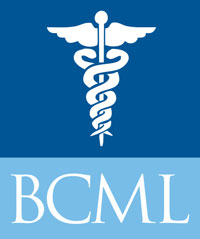Walk-in clinics are designed to offer fast, convenient care, and no appointment is necessary. In a busy city like Toronto, access to flexible medical services is not just helpful, it’s essential. But who exactly can visit a walk-in clinic? The short answer: almost anyone. The longer answer depends on your specific needs, eligibility, and what kind of healthcare you’re seeking.
Let’s break down who can use walk-in services, what you need to bring, and when it might be the right choice over visiting your family doctor or the ER.
Related Article: Benefits of Toronto’s Walk-In Clinics: Fast, Flexible, and OHIP-Covered Care
What Is a Walk-In Clinic?
A walk-in clinic is a healthcare facility that allows patients to see a medical professional without a scheduled appointment. These clinics typically handle non-life-threatening conditions that still require timely attention. Walk-in clinics serve as a bridge between family doctors and hospital emergency departments, offering accessible care to individuals who may not need emergency treatment but still require prompt attention.
Clinics in Toronto often offer extended hours, some even open on weekends and holidays, making them especially convenient for people with busy schedules or unexpected health issues. Many are equipped to handle everything from prescription renewals to diagnostic services like blood work and imaging.
Who Can Visit a Walk-In Clinic in Toronto?
One of the defining features of walk-in clinics is their accessibility. A wide range of individuals can seek care without prior registration or long-term medical records. Here are some of the most common visitors:
1. Ontario Residents with OHIP
If you have a valid Ontario Health Insurance Plan (OHIP) card, you can visit most walk-in clinics for covered services. This includes treatment for:
- Minor illnesses and injuries
- Prescription renewals
- Infections and rashes
- Flu symptoms
- Minor musculoskeletal issues
2. Patients Without a Family Doctor
Toronto faces a shortage of family physicians, and many residents remain unattached to a primary care provider. Walk-in clinics are a vital resource for these individuals, offering care when needed without delay.
3. Students and Young Adults
Post-secondary students, whether local or international, frequently use walk-in clinics. Many campuses have student health centres, but walk-ins provide additional support, particularly after hours or during peak illness seasons like flu outbreaks.
4. Newcomers to Canada
Immigrants, refugees, and those awaiting permanent residency or provincial coverage can access walk-in clinics, though they may need to pay out of pocket. Some clinics offer fee transparency and multilingual staff to make visits easier.
5. Tourists and Visitors
If you’re in Toronto on vacation or a business trip and need medical attention, a walk-in clinic is usually the fastest, most affordable option. You may need to pay for services and then submit receipts to your travel insurance provider.
6. Working Professionals
Not everyone can take time off for a doctor’s visit. Walk-in clinics cater to working adults with extended hours and faster in-and-out service for issues like infections, prescription refills, or minor injuries.
Related Article: Services You Can Expect at a Walk-In Clinic in Toronto
What Services Do Walk-In Clinics Provide?
The scope of services can vary by clinic, but generally includes:
- Assessment and treatment of minor illnesses and injuries
- Prescription refills and renewals
- Vaccinations and flu shots
- STI testing and pregnancy-related care
- Blood tests and lab requisitions
- Basic wound care and sutures
- COVID-19
Some clinics are part of larger medical centres that also offer:
- Family practice
- Diagnostic imaging (X-rays, ultrasounds)
- Physiotherapy and chiropractic care
- Optometry and dental services
These integrated services allow for a more comprehensive care experience when multiple health concerns arise at once.
Related Article: Preparing for Your Ultrasound: What to Expect and How to Get the Most Accurate Results
When Should You Visit a Walk-In Clinic?
Walk-in clinics are best suited for health concerns that are urgent but not life-threatening. Common reasons for a visit include:
- Colds, sore throat, or flu-like symptoms
- Urinary tract infections
- Minor cuts, sprains, or burns
- Skin rashes or allergic reactions
- Pink eye or ear infections
- Mild asthma flare-ups
For emergencies such as chest pain, difficulty breathing, or serious head injuries, it is critical to go to the emergency department or call 911.
What Should You Bring to a Walk-In Clinic?
To help streamline your visit and ensure proper care, bring the following:
- Government-issued ID and a valid health card (OHIP or equivalent)
- List of current medications and dosages
- Details of any allergies or past medical history
- Insurance information (if applicable)
- Payment method for any non-covered services
Being prepared helps the healthcare provider assess and treat you more efficiently.
Are Walk-In Clinics Covered by OHIP?
Yes, for Ontario residents with valid OHIP coverage, most walk-in clinic visits are free. That includes consultations, assessments, and medically necessary treatments. However, there are exceptions:
- Sick notes for work or school
- Cosmetic procedures
- Travel vaccines
- Certain forms of non-essential services
For patients without OHIP or those from out of province, clinics generally charge a flat consultation fee.
Do You Need an Appointment?
No appointment is required to visit a walk-in clinic. That’s what makes them especially helpful for unpredictable health needs. However, some clinics now offer online check-ins or virtual queues to reduce in-person wait times.
In busier areas of Toronto, it’s smart to check wait times online before heading in. Many clinics now post real-time updates on their websites or partner platforms.
What If You Need Ongoing Care?
Walk-in clinics are excellent for short-term treatment, but they aren’t designed for managing chronic conditions or long-term follow-ups. If you need ongoing care, the clinic can:
- Refer you to a specialist
- Help connect you with a family physician
- Provide diagnostic requisitions
Some walk-in clinics are attached to family practices, which allows for more continuity of care and easier patient transitions.
Choosing the Right Walk-In Clinic in Toronto
With so many options across the city, finding the right walk-in clinic depends on your location, hours of operation, and the services offered. Look for clinics that:
- Are close to your home, workplace, or transit line
- Have positive patient reviews
- Offer additional services like diagnostic imaging or pharmacy support
One example is Lockwood Clinic, which combines walk-in care with access to diagnostic tools and pharmacy services in one downtown Toronto location. While not every clinic offers this range, Lockwood demonstrates what a full-service walk-in model can look like.
Walk-In Clinics Serve a Wide Audience
From newcomers and students to working professionals and tourists, walk-in clinics serve a wide demographic with prompt, reliable care. They fill a critical gap in the healthcare system, helping those without a family doctor, needing quick care, or navigating the city’s complex schedules.
Whether you’re managing a minor illness or simply need quick access to care, Toronto’s walk-in clinics are here to help.
If you need timely, convenient healthcare, consider visiting a walk-in clinic near you today. Check our schedule for your convenience.



